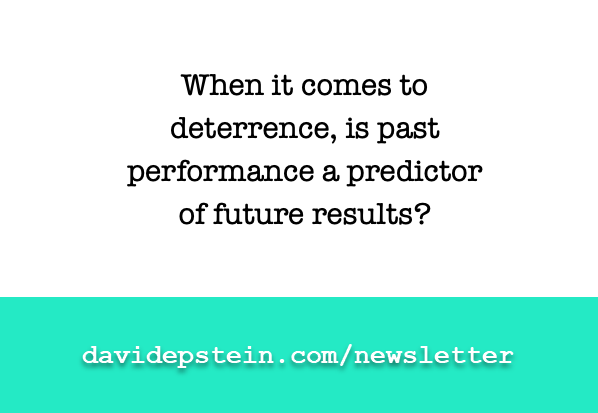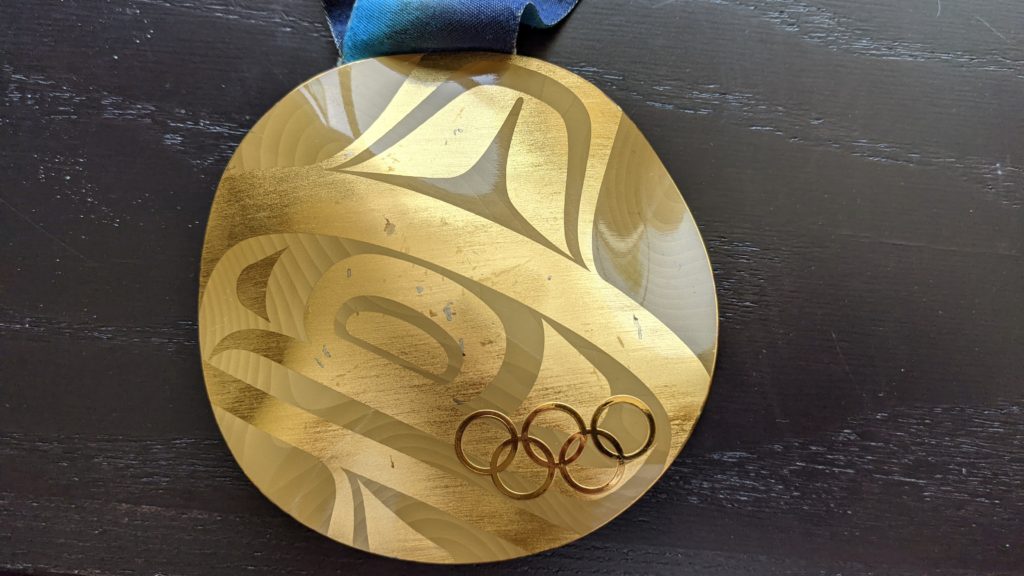April 26, 2021
The paperback version of my book, Range: Why Generalists Triumph in a Specialized World, is out tomorrow, and I’m kinda excited. Specifically, I’m excited for the chapter-sized afterword to finally get out into the world.
Back when the paperback of The Sports Gene came out, with a new afterword, it was highlighted in a Washington Post article about how useless (and that’s my diplomatic wording) afterwords are. Whoops. I was a little surprised, as the afterword contained some new material. (In fact, it contained a seed that would lead me to Range.)
But I happen to really value that particular critic’s work. (If not for him, I wouldn’t have heard of American War, one of my favorite novels.) I took the criticism from the article — of all the afterwords, not just mine — on board. As Malcolm Gladwell once said, when asked about my critique of something he wrote: “I have the luxury of learning from my critics.” And if I can’t learn from a critic whose opinion I value, then I am not — to put it in terms from chapter 11 of Range — a “learning organization.”
My approach for the Range afterword was to include genuinely new material — a substantial new story, and research results that didn’t appear elsewhere in the book — and also to prioritize content related to questions I’ve gotten repeatedly from readers since the hardcover publication. Thus, the afterword contains:
-
A detailed new story about the zig-zaggy path of an artist whose work knocked my metaphorical socks off. (And he won a MacArthur grant, so I’m not the only one he left without metaphorical socks.)
-
A discussion of the Army’s new “talent-based branching” program, and its lesson for anyone looking to improve career match quality.
-
International data I didn’t previously include about specialization versus breadth in education.
-
And, near the end, a few surprising details from a chat I had with Serena Williams.
Between turning in the manuscript of Range and publication, I became a parent. So I also share in the afterword how research that went into the book is shaping my own parental perspective. (Almost forgot, a lot of people asked me what Angela Duckworth thinks about my work; so I included in the afterword her take on the idea of a “sampling period.”)
I don’t know if the aforementioned critic would find any more value in this afterword than the last one, but I like this one much better than the last one. I’ll leave it to readers to judge whether or not I succeeded, but I’m thankful for the tough feedback.
The full afterword is way too long for this newsletter, but I’ve pasted just the first section below. If you have the ebook already, an update with the afterword should be freely available, and I believe audiobooks will be updateable as well. If you don’t have it, it’s available in the paperback, which will be at bookstores starting tomorrow. Without further ado:
ONE OF THE EARLIEST recorded uses of the phrase “Jack of all trades” as an insult dates to 1592. In the New Latin form “Johannes factotum,” it was contained in a pamphlet by a playwright criticizing his own industry. The jab refers to a poet with no university education who was apparently involved in various other roles, like copying scripts and bit-part acting, even trying to write plays. The poet on the receiving end of the insult: a young William Shakespeare. The phrase evolved over time, and today it’s usually “Jack of all trades, master of none.” I think it is culturally telling that we habitually hack off the end of the long version: “A Jack of all trades is a master of none, but oftentimes better than a master of one.”
Lately I’ve been thinking in a more personal way about the implications of these cultural cues, and of the research in Range. Between the time I turned in the final manuscript and the time the hardcover was published, I became a parent. I’ve been asking myself how, in this new adventure, I might (eventually) wield some of what I learned. That, in turn, led me to a bit of analogical thinking: at the moment, I’m conceiving of my role as akin to the role of a coach-like mentor in the Army’s “talent-based branching” program. I realize it might seem odd for me to liken my parenting strategy to a military program — one that I mentioned only in a footnote on page 140. But this is not a surface analogy, it’s a deeper, structural analogy.
The talent-based branching program grew out of the Army’s realization (discussed in chapter 6) that it had developed a match-quality problem, particularly with West Point and ROTC cadets who received scholarships. The Army persisted in a traditional model of talent development: assigning future officers to a career path before they knew much about their own abilities and interests, or much of anything about the career. Cadets could express preferences, but it amounted to requesting a profession they did not know well enough for the person they had not yet become. And once they chose, they were stuck. In a knowledge economy, bursting with sampling and lateral mobility, cadets simply left the service (in droves) if they turned out to have a subpar career match. The talent-based branching program was designed to help young officers get a better understanding of potential careers earlier in the selection process, and discover their own interests and talents at the same time. Essentially, it provides them with a sampling period.
As officers-in-training cycle through classes, internship-like work experiences, and field training that exposes them to different jobs, they are encouraged to take part in constant self-reflection, both on their own (which they can track in an online portal) and with mentors. (Learning about and reflecting on their own strengths and weaknesses, according to an Army Strategic Studies Institute monograph, “can sometimes be a bit of a shock.”) The idea is to foster better match quality, and in turn to improve performance, satisfaction, and retention. When talent-based branching was piloted with West Point cadets, nearly 90 percent of participating cadets changed at least one of their top three career preferences. Once again: we learn who we are in practice, not in theory.
I think that’s a useful model for parenting. First, I’d like to facilitate a sampling period for my kid — to expose him to a variety of experiences and possibilities. (A 2019 Organisation for Economic Co-operation and Development (OECD) report found that children already significantly narrow their ideas of possible careers by age seven. “We must fight to keep their horizons open,” said Andreas Schleicher, OECD’s director of education and skills.) And then my role is that of the mentor, supporting my son by helping him get the maximum amount of signal about his own talents, interests, and options from each experience. I hope that will help guide him to good match quality, broaden his toolbox en route, and form a habit of regular reflection reminiscent of the dark horses from chapter seven, who repeatedly say to themselves, “Here’s who I am at the moment, here are my motivations, here’s what I’ve found I like to do, here’s what I’d like to learn, and here are the opportunities. Which of these is the best match right now? And maybe a year from now I’ll switch because I’ll find something better.”
Shortly after Range came out, Ruth Brennan Morrey — a former college soccer co-captain and pro triathlete, Olympic Trials marathon qualifier, and psychology PhD — tagged me in an apt tweet: “Listening to @DavidEpstein ‘Range’ in the car with 12 year old daughter. ‘Mom, why do we make “What I want to be when I grow up” signs on the first day of school? We should make “Top 5 things I want to learn about this year” signs.’ Smart cookie. :-)” I think I’ll borrow the twelve-year-old’s idea.
Ultimately, I think helping individuals get the maximum match-quality signal from each zig and zag is a good model whether one is “managing” kids, mentees, teammates, employees, or, as management scholar Peter Drucker put it twenty years ago in a prophetic Harvard Business Review article, “managing oneself.” The summary atop the article — which predicts that workers would increasingly have longer and multifaceted careers — reads: “Success in the knowledge economy comes to those who know themselves — their strengths, their values, and how they best perform.”
And that’s where the first of six sections ends. Thank you for reading, until next time….
David
p.s. If you’d like to expand your range, you can see previous posts and subscribe here.



